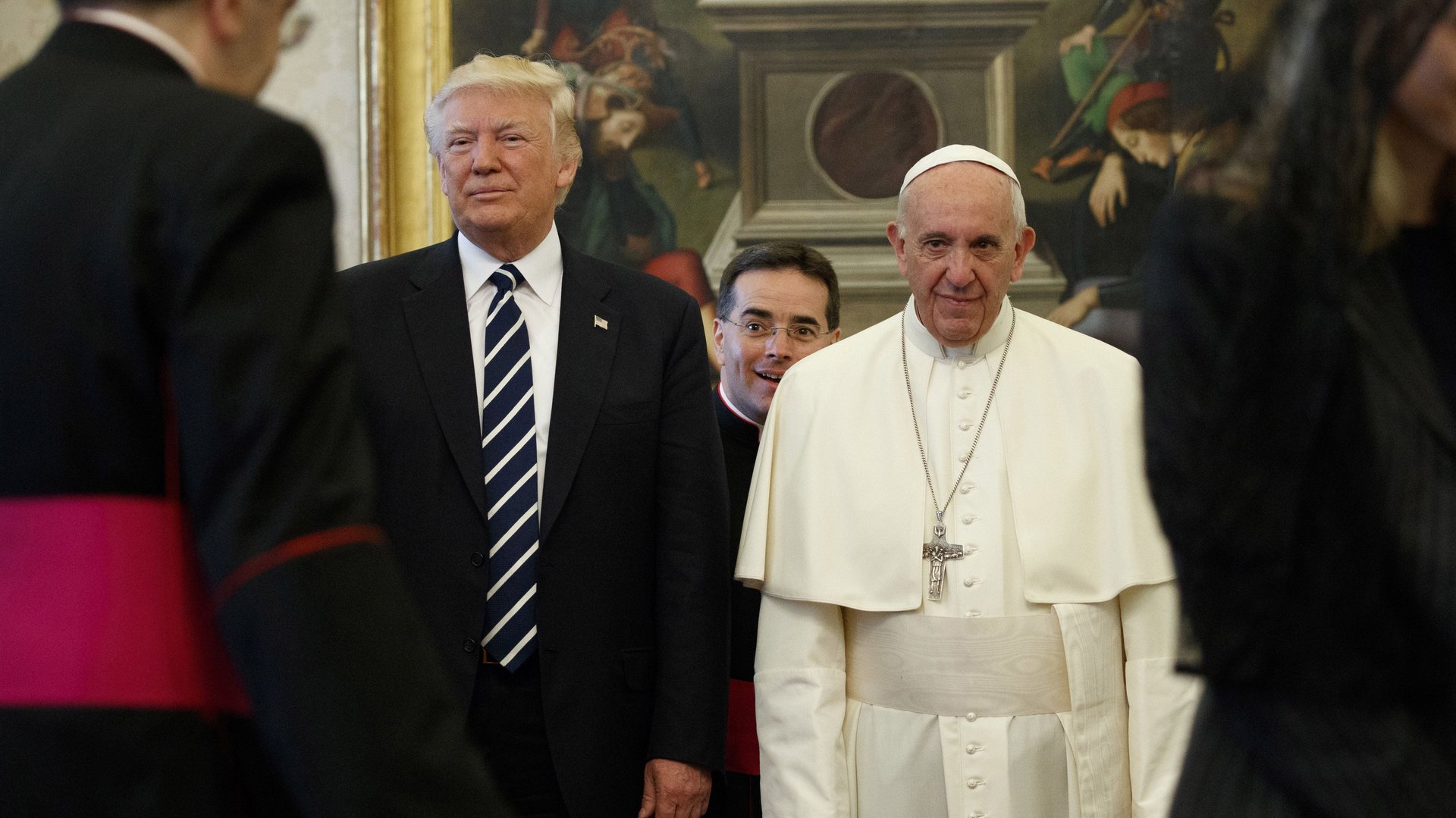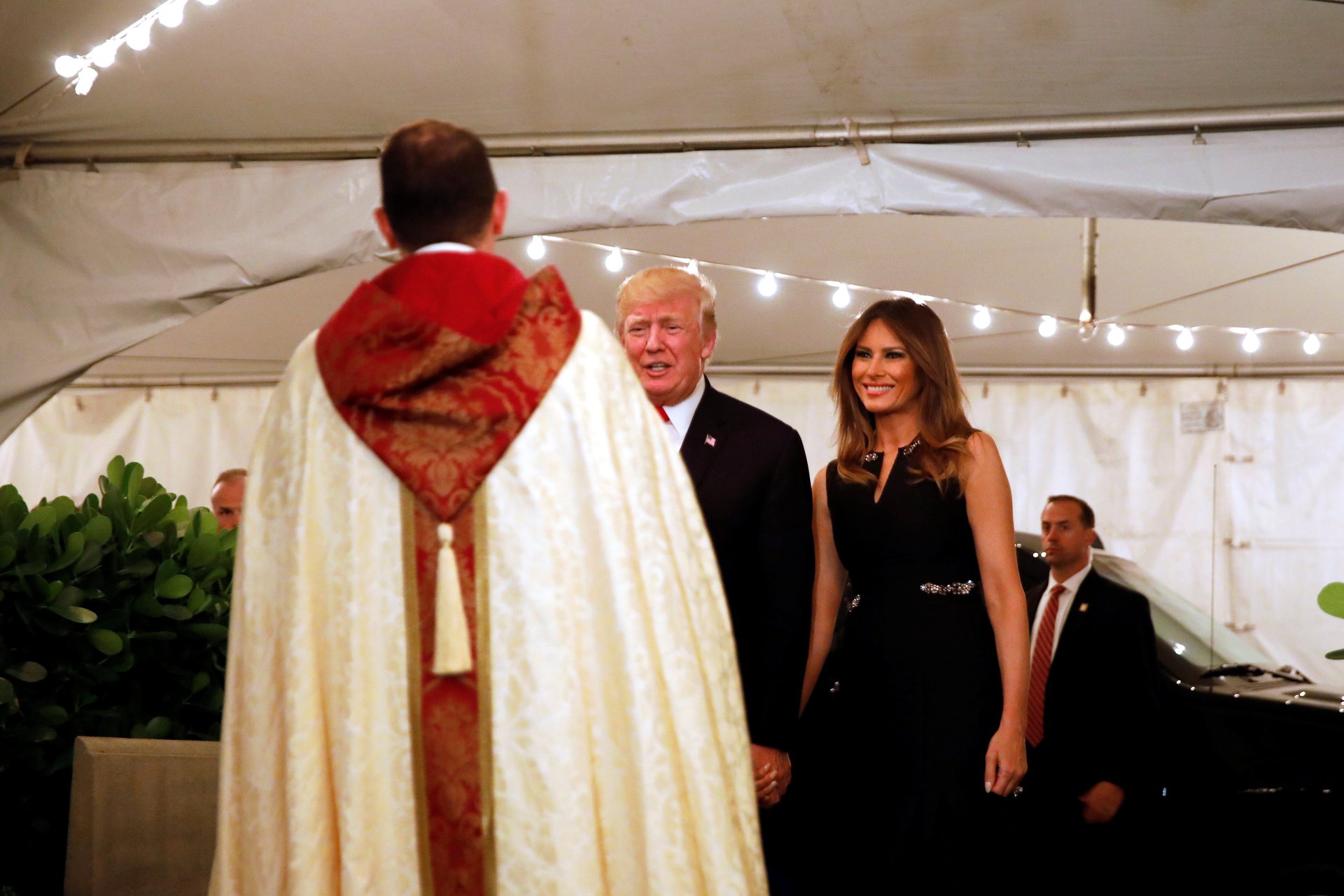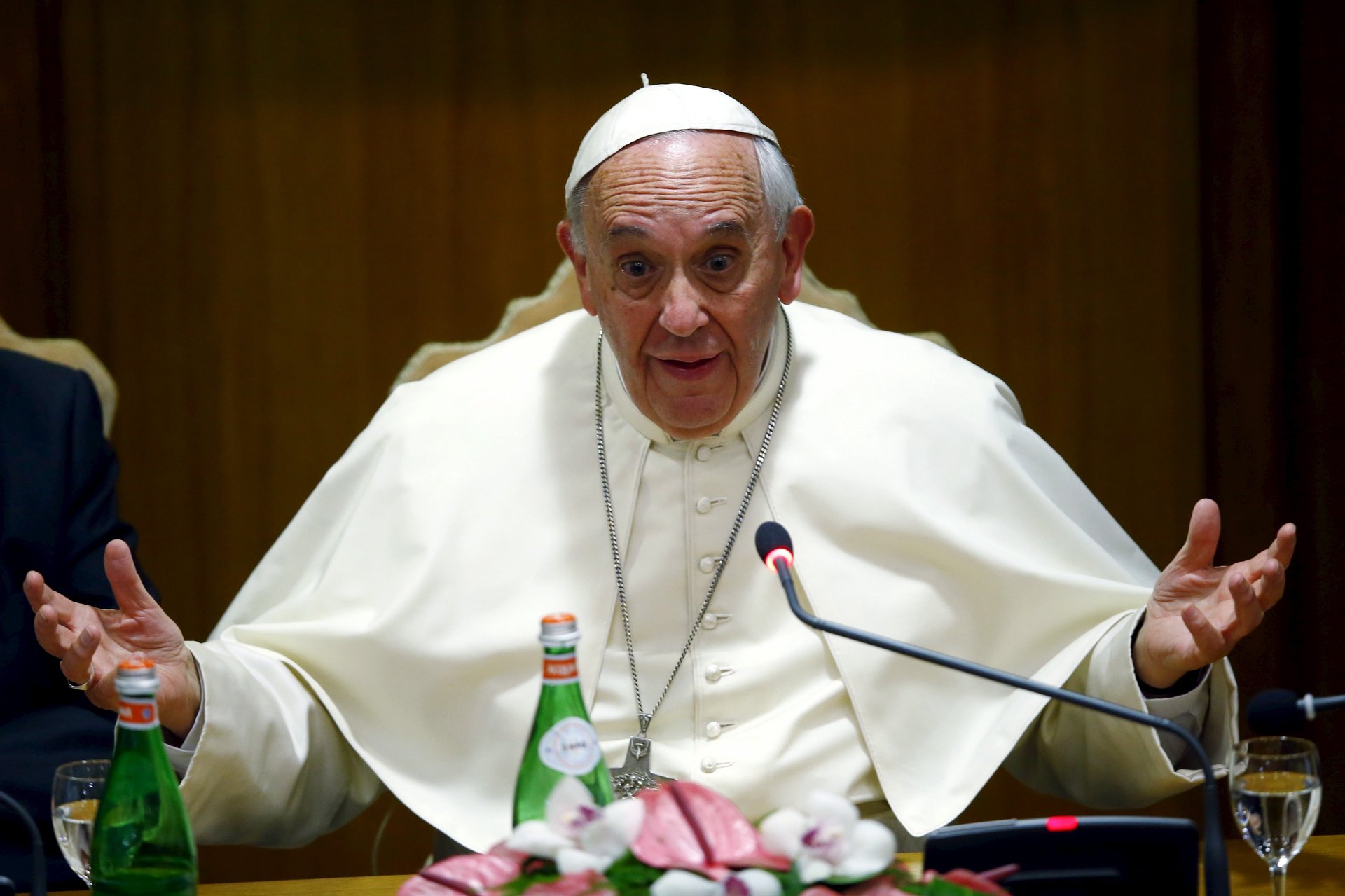In America, politics is the new religion
President Trump enjoys a 61% approval rating among white evangelical Christians, despite the fact that he does not seem to share many of their core beliefs. He may be willing to appoint pro-life judges, and he’s hawkish on Israel, but in many other ways, he stands at odds with US evangelicals. He does not belong to a church. He has a history of supporting abortion rights. He has been accused of sexual harassment by numerous women, and he has refused to condemn white supremacists.


President Trump enjoys a 61% approval rating among white evangelical Christians, despite the fact that he does not seem to share many of their core beliefs. He may be willing to appoint pro-life judges, and he’s hawkish on Israel, but in many other ways, he stands at odds with US evangelicals. He does not belong to a church. He has a history of supporting abortion rights. He has been accused of sexual harassment by numerous women, and he has refused to condemn white supremacists.
At one time, religion played a central role in American life and served as an important marker of identity. Politics was secondary. But, over the last fifty years, there has been a shift. It seems that faith has become less important to personal identity and politics has become more important. Today, Americans, particularly conservatives, are more likely to take their cues from political leaders than from their church, with consequences for people advocating on contentious issues like climate change.
“I think it’s possible that some of our political values are replacing our religious values,” said Asheley Landrum, a scholar of science communication at Texas Tech University. “That is a hypothesis that I have, and I don’t think that it is something that is heavily supported by research yet. I think that it’s something that we really want to find out.”
What’s clear is that there has been a shift in the way people think about politics and religion. In 1960, 75% of Americans say that religion is important to their lives. By 2010, that figure had dropped to 58%. That change corresponds with a greater openness toward other faiths. In 1960, only 5% of Christians married a non-Christian. In 2010, some 18% of Christian newlyweds were married to non-Christians.
The same period saw a dramatic change in views toward political opponents. In 1960, only 5% of Americans, for example, said they would be displeased if their son or daughter married someone of a different political stripe. In 2010, around 40% of Americans said they would be upset if their child married someone belonging to another political party.
Landrum cautioned against reading too much into the decline of religion, noting that many people remain privately devout. Rather, she said, the evidence suggests a turn away from organized religion—which is consistent with a larger decline in public life. Just as church attendance has fallen over the last half-century, so has membership in service clubs and labor unions.

“Fifty years ago, most people found identity through their family, church, neighbourhood and (if male) their job and trade union. But these identities have steadily weakened,” wrote Simon Kuper of the Financial Times. “In short, many Americans and Britons lost their tribes. But now politics is creating new ones.”
This trend, in turn, may be exacerbating political polarization. There was a time when the most liberal Republican in Congress was to the left of the most conservative Democrat, but that is no longer the case. The parties have sorted along ideological lines, each moving away from the ideological center. Today, Democrats are more liberal and Republicans more conservative than they were in decades past.
The balkanization of the news media has made polarization even worse by making it easier for partisans to consume news that accords with their point of view. “We are only getting our evidence from a very narrow scope,” Landrum said. “We are still going to make the assumption that the evidence that we’re seeing—that’s coming down our social media feeds—is representative of what’s going on in society as a whole.”
Tribalism, in some sense, is inevitable. “I think that at our core, we’re tribal. People are tribal. We unite as a country when we have an external enemy,” Landrum said. “But then, of course, we get more and more partisan again as we start turning toward one another and start defining ourselves into specific tribes.”
During the Cold War, Americans were unified against a perceived common foe. But after the collapse of the Soviet Union, partisans were free to focus their animus on each other. Political polarization flourished, and conservative elites focused much of their energies on discrediting environmentalists, who were calling for limits on industry. Conservative lawmakers became increasingly hostile to environmental policy, and conservative voters followed suit. After the end of the Cold War, support for environmental spending saw a precipitous drop among conservatives.
Sociologists have long understood that people rely on elite cues to form their opinions. It’s difficult to understand the nuances of every issue, so Americans generally adopt the views of people who share their values. What’s remarkable is that, in many cases, Americans are now looking to political leaders rather than religious leaders for moral guidance.
Republicans, for example, have long supported free trade and have been skeptical of Russia, but in the months leading up to the 2016 election, they moderated their views, becoming more opposed to free trade and more friendly toward Russian president Vladimir Putin, mirroring Donald Trump’s views on these subjects. But, when Pope Francis delivered his 2015 encyclical on climate change and the environment, he largely failed to convert Catholic conservatives. Republicans stayed faithful to conservative political leaders and dismissed the pope.

Landrum studied American reaction to the encyclical. She found that the encyclical did little to win over political conservatives. The biggest effect was to change how Americans saw Pope Frances. “Political conservatives—whether they were Catholic or not Catholic—were more likely to say that they found him to be less credible,” she said. “Liberal non-Catholics found the pope to be more credible. Liberal Catholics already saw the pope as being amazingly credible.”
Landrum has argued that the pope’s message was unlikely to win over conservatives. His encyclical focused on the impact of climate change on the global poor. “It’s not that conservatives don’t care about poor people. It’s that care for the poor or less fortunate is just one of many moral concerns for conservatives, whereas it is the primary, if not the only, moral concern for liberals,” she said. “If the goal is to actually change political conservatives’ views on climate, we can’t keep making the same liberal arguments.”
For climate advocates, appeals to faith have been of limited use, particularly among conservative evangelicals. “The average pastor faced real risk if climate change got pushed too hard in sermon,” wrote David Roberts of Vox. “Climate policy and politics were charged and dangerous, especially with increasingly militant conservatives lining the pews.”
It is often the case that when people are caught between their church and their political party, Landrum said, “they’ll end up defaulting to what the party line is.” That’s a problem for faith leaders hoping to persuade political conservatives. Landrum said, “The question is not, ‘Can we change people’s values?’—because the answer is ‘no’—but, ‘Can we get them to use a different set of values to evaluate different types of information?’”
This post originally appeared on Nexus Media.